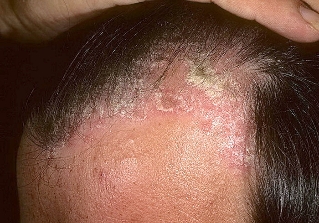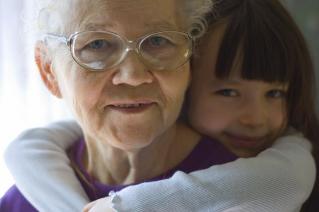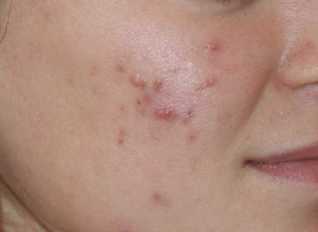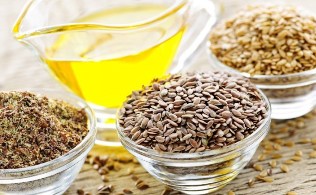There are a large number of dermatological diseases. One of the most common diseases of the skin – psoriasis. The treatment of psoriasis is very relevant to the theme of modern medicine. Thousands of pharmaceutical companies every day they release new tools to get rid of this disease, however, to date there is no drug that is able, once and for all get rid of the disease. In this article we find out all about psoriasis and its treatment, and we will try to answer these common questions about what to do for psoriasis how to get rid of psoriasis, and also if it is possible to cure psoriasis once and for all.

What is psoriasis
This disease refers to diseases of non-infectious, cannot be transmitted in the household, sex, air or in any other way. Many patients believe that this disease affects only the skin, but it is not so. The disease has a couple of species that are able to manifest not only on the skin in the beings, and have a negative impact on the nails, the joints and some internal organs.
So, what is the psoriasis. A person with healthy skin the cycle of the maturation and division of the cells of the skin varies from 28 to 30 days, for psoriasis this period is reduced dozens of times and is just 4-6 days. Because of this we are not yet matured, the cells begin to divide and die, causing the skin and form bad white or greyish flakes. Scientists around the world to this time, may not understand the precise reasons why this process occurs. Are known only some triggers can cause a relapse and the worsening of the disease.
The disease can occur in men, women, and even children. According to some statistics, well-known which are more prone to the disease people who live in countries with cold and damp. Also at risk are young people between the ages of 18 and 25 years of age and older patients after 45-50 years of both sexes. The children get sick less, and have the disease may occur in atypical form, without specific for the psoriasis symptoms, such as, for example, scales, itching and flaking.
The danger of the disease
It's not worth to believe, that, in addition to the cosmetic problem, psoriasis is not capable of inflicting serious damage to the body. Symptoms such as itching, redness, skin flaking is only a small part of what can cause this disease. Experts say that many patients often develops a form of diseases, such as psoriatic arthritis. This is a serious defeat of the joints and cartilage, which can also lead to disability. Also to the complications of psoriasis can be attributed to the following events:

- The defeat and the deformation of the nails.
- The defeat of the mucosa. This can also be a disease of the bladder and of the urethra.
- In the background of the onset of disease may develop severe diseases of the gastric mucosa.
- Often suffer from the liver, increases in size and ceases to perform its functions.
- In addition, patients often experience complications, such as convulsions, depression, delirium, polyneuritis, and many other psychological disorders.
- Among the most common complications of persistent muscle and joint pain, strong weight loss.
- There are cases of myocardial infarction, stroke, heart failure and other diseases.
- Often increase the lymph nodes, especially in the area of the groin and thighs.
These are just some of the consequences, which can carry the disease. The list can go on and on, but without this, it is obvious that the psoriasis is a severe illness that requires a serious and timely treatment.
The causes of the development of the disease
In the current phase of the research to psoriasis scientists and doctors and is not able to converge in a single opinion about the exact causes of the development of the disease. The representatives of the different theories adhere to points of view, explain the possible causes of pathologically rapid division of skin cells. Next, consider the most popular theory of the development of the disease.
Genetic
Another point of view is the theory of genetics. His supporters believe that psoriasis is inherited. According to the medical statistics, over 50% of all patients suffering from a disease, the disease has suffered from one of the parents. Also, if the mother or father are suffering from this disease, the risk of develop psoriasis of the child increases by 25%, if the disease suffer from both parents, the risk increases of over 50%.
Endocrine
The hormones of the body plays a very important role. The endocrine system consists of endocrine organs such as the thyroid, pancreas, and the pituitary gland, responsible for the balance of the hormones. The disease and the malfunctioning of these organs can lead to a hormonal imbalance, according to the supporters of the endocrine system theory and leads to the development of unhealthy division of cells in the dermis.
Also the imbalance can often occur during puberty, menstrual cycle and menopause, but hormonal treatment means and under the influence of some other reasons.
It is important to note that, in modern terms, the research has demonstrated the influence of hormones on the onset of psoriasis, then, this theory remains only a hypothesis.

Нейрогенная
This is one of the young theories, whose representatives believe that the appearance of the disease may occur in a context of strong stress and psychosomatic disorders. The theory is not proven, his supporters conduct studies to date.
The appearance of the disease нейрогенная theory explains the development vasomotor neuroses in the walls and in the muscles of the blood vessels. This process is able to cause the contraction of the vascular walls, resulting in greatly reduced the circulation of blood.
The theory is not proven, however, numerous studies confirm the fact that the majority of patients psoriasis exacutus or presented for the first time after strong emotional stress and experiences.
The main types and symptoms of psoriasis
The symptoms of psoriasis can be very different. Its manifestations depend on the type of disease. Forms of psoriasis in the medical practice, divided into the following types.
Psoriasis of the scalp
This is one of the most common types. Many patients have encountered this problem and know how unpleasant this disease. Curable psoriasis when psoriasis affects the scalp? No, of course not, like others of his species. Manifests itself in the disease of each patient in a different way. These can be mild skin rashes in the area of the hairline, accompanied by flaking and dandruff, and can manifest the disease large plaques with thick crusts and considerable redness of the skin.
Cure psoriasis of this type is necessary, absolutely not recommended to let the disease take its course.
Psoriasis of the nails
In the face of this type of disease patients concerned about the issue, treated if psoriasis of the nails. Because the disease is not only a beautiful aesthetic appearance clavum plates, and leads to a strong their distortion, delamination, and even a complete loss. The development of this type of disease is most often compared to other types of disease and requires a global approach and the correct treatment.
The fight with psoriasis of the nails is often one of an integrated approach and a long enough treatment. The patient should arm themselves with patience to get positive results.
Psoriasis hands
The hands, i.e. the palm is highly susceptible to different mechanical damages and clutches. Often this type of disease occurs in men and women. The main signs of psoriasis of the hands are callused training with flaking, itching and redness. Aggravated the disease frequent lesions of the skin, as well as the palm of the hand are very mobile.
Psoriasis on the face

The appearance of a skin rash on the face is very unpleasant, as this area is constantly in mind. Patients confused about how to defeat psoriasis of the face. Why ugly gluma platelets not only express a strong discomfort at the physical level, but also a significant deterioration of the emotional state. The disease of this type can be versatum on any area of the face: cheeks, nose, lips, on the forehead and on the chin. Treatment bow depriving on your face (often referred to as psoriasis) complex and molestum process.
Psoriasis on the legs
Flows very similar to the disease at hand. This form can strike the inner surface of the thighs, the knees, at least the tip of the foot. The features are itching, desquamation and the inflammatory process.
The psoriasis on the elbows
Frequent type of pathology, is present in many patients of different age groups. Hits the outer surface of the elbow. Externally, the disease resembles the appearance on the skin niveus or grayish film as the so-called shell. The Ulna psoriasis treated is not difficult and often the forecasts are favorable for the patients.
Psoriasis vulgar
More a mild form of the disease. When the skin of the patient appear to be blocks of platelets, which are not of great discomfort for the patient. The psoriasis vulgaris can be treated with the help of funds for the local application and adhere to simple preventive measures.
Psoriasis on the genitals
The disease of the genital organs is quite rare. Virtually in 99% of cases is not a disease independent. The disease often confused with many diseases venereal, and call for a dermatologist's patients are in no hurry. The men will hit the head of the penis in women the disease spreads on the lips.
Important! It's not worth attempting to establish a diagnosis. Often a form of psoriasis, it is in the other. A diagnosis and prescribe a medical treatment can only.
Methods of treatment of psoriasis
The majority of patients faced with this disease do not have the slightest idea of how to get rid of psoriasis. Also, people simply do not know that treated this disease. Later in this article we will try to understand what are the ways for the treatment of the disease, and what are the characteristics of the treatment of psoriasis.
Before starting the treatment of every patient must remember that psoriasis is incurable. Treatment is always geared exclusively to the resolution of symptoms, strengthening the immune system, but also to the achievement of support remission.
Methods of treatment of the psoriasis are very different and are in use in the following techniques:
Pharmacological treatment
Psoriasis and its treatment – long and complex process. In medical practice, the phases of approach, that allows the achievement of a result that lasts for a long time. This approach includes the following steps:
The doctor collects the funds, depending on the severity of the condition of the patient, but also the characteristics of the disease.

During the exacerbations of the disease, the doctor may recommend the patient with a certain type of cycle of therapy. Consists in the application of a medication for a long period of time with the goal of preventing serious complications and side effects. The scheme of treatment of psoriasis can look like the following:
In most cases, after the cycle of treatment comes as a relief and persistent remission.
Drugs for topical use for psoriasis
Very often to relieve the itching, inflammation, redness, and other symptoms of the disease in the clinical practice, using the funds allocated for the application. To this group belong the medicines, products in the form of ointments, gels, lotions, sprays, shampoos, etc.
The use of such drugs demonstrates mild to moderate form of the disease. In cases where the course of the disease the drugs most commonly prescribed in combination with stronger means.
Specialist take the medication, considering the severity of the disease and the individual characteristics of the patient. Methods of treatment of psoriasis with the help of external medications can be used in patients of different ages and give a minimum of side effects.
Alternative methods for the treatment of psoriasis
In addition to traditional therapy there are alternative treatments of the character. Very often in practical application the non-conventional treatment gives the most unexpected results. Then, how to cure psoriasis alternative methods consider via.

Ichthyotherapy
This is a relatively new method, also outside the with the help of small fishes Garra rufa. It plays this type of therapy in nursing homes, where there are the sources. Held a session very easy. Man is immersed in the water with the fish, which in turn purify the body by the coarsened particles of skin and scales, absolutely does not affect healthy areas.
Treatment with clay and mud
Very good cleans the skin, platelet-mud. Often use, for example, the dirt, the extract, on lake Siwash. Can be purchased at the pharmacy. For the application of sludge heated to a temperature of 38-39 degrees and put a thin layer on the affected area. After 30-40 minutes, wash the mask with warm water and applied on the skin a soothing cream.
Plasmapheresis
As already known, one of the main causes of psoriasis is a disorder of the metabolic processes of the body. Because of a violation of the rate-of-balance occurs in a buildup in the body adverse of these products, such as slag, toxins, radicals. These components have a negative impact on the entire body, exploding from within. A blood transfusion for psoriasis is one of the methods of struggle with the disease. For these purposes using a centrifuge (plasmapheresis). With this method it is possible to clean the patient's blood of harmful substances and pathogenic bacteria, viruses and fungi. Thanks plasmapheresis is able to achieve the following objectives:
- purification of the blood;
- improvement of microcirculation;
- eliminate inflammation;
- elimination of the degradation products and other harmful components.
The traditional methods of treatment of the disease
The cleaning of the body psoriasis is often the case with the help of folk remedies. With these goals use a variety of products of natural origin, as well as the grass. Then, how to cure psoriasis, using traditional methods will deal with later in this article.
All the treatment methods can be divided into medicines for internal reception, and also the funds for the external application.























